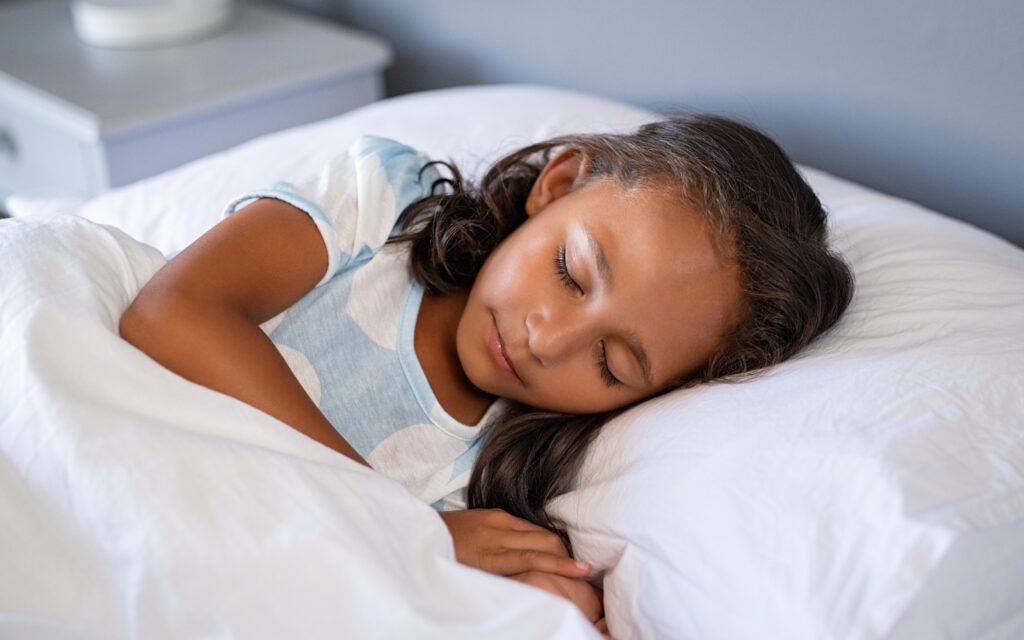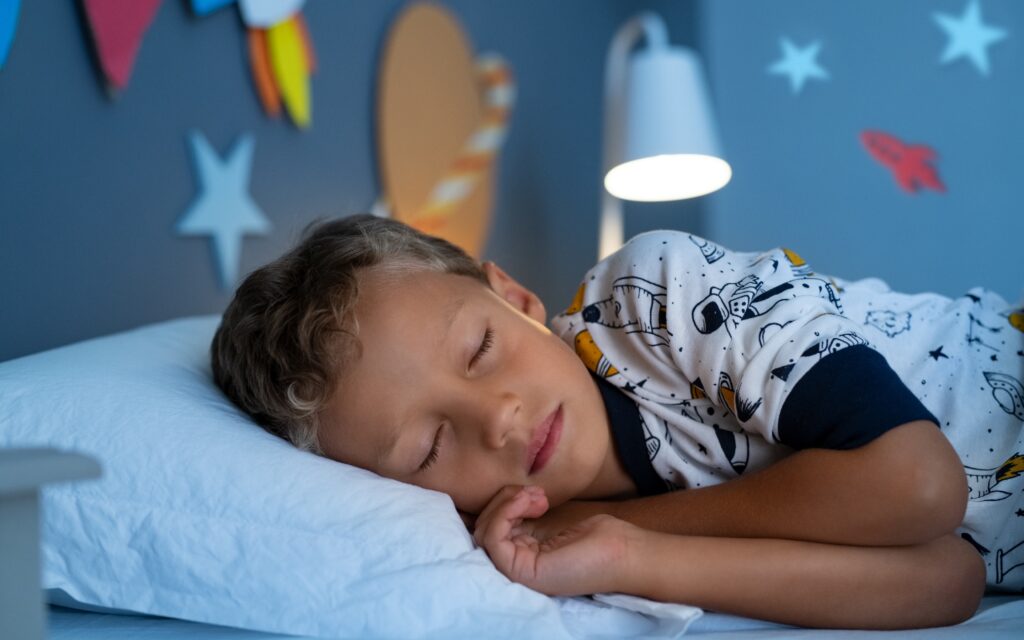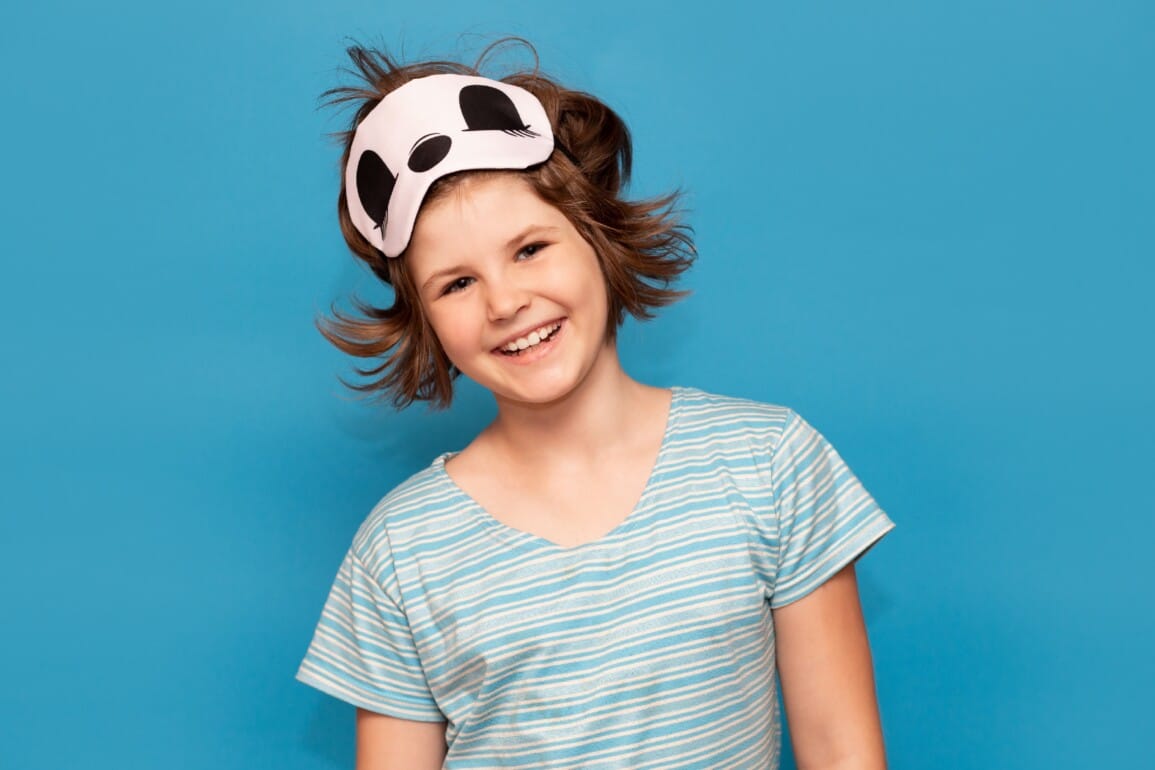Slenyto and similar medications offering extended-release melatonin for kids could have value for the treatment of insomnia in younger people. Today’s post is about the possible benefits of extended-release melatonin. Read on to get the latest research explained.
The presence of sleep disorders in children with autism spectrum disorder is relatively common, according to a recent scientific study. A subset of people with autism even carries mutations in sleep-related enzymes, which damage their ability to drift into a peaceful night of sleep.
As sleep deprivation can have significant repercussions for the developmental growth of a child, emotional stability, and even physical health, the correct treatment path must be implemented to help youngsters thrive.
For many, melatonin, the “natural” sleep hormone appears to be a valuable treatment option, promising minimal negative side-effects, and the potential for positive results. Let’s take a closer look at Slenyto and other melatonin options for kids.
Insomnia and autism: Can I give my child melatonin every night?
Not every child will necessarily need additional support to get a good night’s sleep. Unfortunately, children with ASD (autism spectrum disorder) are more likely to struggle with their sleeping habits. As studies have shown, implementing strategies to enable a good night’s sleep in children can be crucial in promoting better wellbeing.
An approximate two thirds of children and teens with ASD have problems with sleep. This includes issues with falling asleep, waking up during the night, or early waking. Studies indicate around 41% of people with ASD have difficulties initiating sleep, while 54% struggle to stay asleep.
Some studies indicate low or uneven levels of melatonin in children with ASD may be part of the problem. This means taking supplemental melatonin, and products like Slenyto, could be useful to minimize sleep problems.
Melatonin is the natural hormone in the human body responsible for helping the body relax for sleep. It’s frequently used by people of all ages with insomnia.
It still isn’t generally recommended for year-long use , as frequent doses of melatonin can cause side effects like stomach upset, headaches, low blood pressure, and even nightmares. However, the longest studies in children show no side effects after 52 weeks of use.

Melatonin for kids with autism
For kids with autism, melatonin could be an important part of ensuring a good night’s sleep. At night, an enzyme in the pineal gland of the brain known as acetyl serotonin methyl transferase, or ASMT, helps to convert serotonin into melatonin – the substance required for a positive sleep cycle.
Studies dating back to the 1960s indicate elevated levels of serotonin in the blood levels of children and adults with ASD. Three reports in the last fifteen years have demonstrated low levels of melatonin in people with the same disorder.
In 2008, a study found some individuals with autism carry mutations in ASMT, and therefore have less melatonin in their blood compared with controls. The decrease is significant enough to cause significant problems with the circadian rhythm.
Further research is necessary to determine how significant the disruption of melatonin levels is to the sleep patterns of children with ASD.
What we know from studies so far is compelling. Some researchers even believe the use of melatonin within treatment for ASDcould help to significantly improve the quality of life for people with autism.
By rebalancing the levels of melatonin in children with ASD, it could be possible to address a wide range of symptoms associated with ASD, according to this report from 2018. Not only could using melatonin correctly assist in reducing sleep disturbances and improving quality of sleep, but it could also help manage anxiety disorders.
Is Slenyto the same as melatonin?
Slenyto is a product available in tablets for the treatment of sleeping disorders in children and adolescents. The dosage is usually 1-5mg taken 30 minutes to an hour before bedtime, but the dose can be further increased, if the medication isn’t having the right impact.
The active substance in Slenyto is melatonin – the naturally occurring hormone required to help us maintain a healthy circadian rhythm. However, it’s worth noting Slenyto and supplemental melatonin aren’t exactly the same thing.
When speaking to a doctor about options to help with children’s insomnia, they may recommend the consideration of different types of melatonin, to better support your child’s development. The two types of melatonin offered in most cases are:
Standard release melatonin
Standard melatonin is the common type of melatonin anyone, of any age can generally get over the counter at a pharmacist. This form of melatonin comes in liquids, tablets, and capsule forms and is intended for use immediately before bed. Regular tablets dissolve and release supplements instantly into your bloodstream.
Extended-release melatonin
Extended-release melatonin, otherwise known as prolonged release melatonin, stays in the system for a longer period of time. The tablet or capsule dissolves slowly, releasing melatonin in the same way your body would during the night. This is the kind of melatonin you get with Slenyto.
If your doctor recommends extended-release melatonin for kids, it’s important to follow their guidance regarding dosage and regularity. Overdoses of melatonin aren’t necessarily fatal, but they can disrupt your circadian rhythm and cause significant discomfort.
Is long-term melatonin use safe for kids?
Using products like Slenyto for the treatment of insomnia in children can cause concern for parents. It is worrying giving children supplements for extended periods of time.
In general, melatonin is like many treatments for insomnia – it’s not really intended as a permanent fix. We need further investigations into whether extended-release melatonin, like Slenyto, could be a long-term solution for kids with ASD.
Though there are some potential side effects which may occur with regular use of melatonin, most children tolerate the supplement well. However, your doctor will often recommend arranging regular review appointments where you can assess the efficacy of the treatment, and how well it’s contributing to a better night’s sleep for the child.
Up until now, the use of melatonin for kids has been mostly “off-label”. However, the use of extended-release melatonin as an approved treatment is gaining more popularity. Studies have demonstrated the potential benefits of prolonged-release melatonin in children and adolescents with neurodevelopment and behavioral issues.
In one case, a study into 88 children found after taking a dose of melatonin for three months, sleep latency with prolonged-release melatonin decreased by 44%, while the number of waking periods during the night reduced by 75%.
The same study found sleep quality improved by 75%. Notably, in this research, no adverse side effects or treatment-related comorbidities were evident. The researchers concluded prolonged-release melatonin is both an effective and safe long-term treatment for sleep disorders in children with ASD.

Using prolonged release melatonin for kids
As noted above, the rise of positive research into the benefits of extended-release melatonin for kids is making drugs like Slenyto more commonplace in many parts of the world.
One study into 125 subjects in 2019 found prolonged-release melatonin use in children with ASD led to significant improvements not just in sleep, but in child and caregiver quality of life.
According to the study, melatonin treatment led to significant improvements in externalizing but not internalizing behavior of around 53.2%.
Caregiver quality of life also improved significantly. Research such as this could pave the way to a future where prolonged-release melatonin is more commonly offered as part of a comprehensive treatment plan for children with ASD.
Further studies found 52 weeks of continuous melatonin use in children with ASD led to results such as 62.08 minutes of extra sleep for children, and an increase in the duration of uninterrupted sleep by 89.1%. Furthermore, nightly awakenings reduced by 0.41, and quality of sleep increased significantly too. By the end of the study, no negative side effects were evident from the long-term use of extended-release melatonin for kids.
Of course, products like Slenyto are just one option for parents hoping to help their children with their insomnia issues. Melatonin can be a valuable substance for kids with ASD, but most healthcare professionals will also recommend” BSC,” or best supportive care, for children and teenagers with autism spectrum disorder.
BSC involves various activities designed to improve sleep hygiene, such as making sure the bedroom is quiet, dark and at a comfortable temperature. It’s also advised children are asked not to use a phone or computer before going to bed.
Using Slenyto for children with ASD
There’s no one-size-fits-all treatment for insomnia and sleep disorders, no matter your age or mental state. For some children with ASD, the use of Slenyto and extended-release melatonin for kids seems to be extremely beneficial. Ongoing research into the use of melatonin for regulating the circadian rhythm of children is extremely positive.
In the research available today, it seems clear that melatonin can assist not just with the sleep quality of children with ASD and similar conditions, but other quality of life elements too. For instance, children with ASD may have better management of their emotions and stronger feelings of wellbeing after using extended-release melatonin.
While additional research is necessary, the current information we have is positive. As always, it’s important to speak to your doctor about the right options for your child, before starting a new form of treatment. Make sure you discuss all of your options carefully before pursuing something like Slenyto.
Siestio. Sleep matters.
Medical disclaimer
You must not rely on the information provided on our website as an alternative to medical advice from your doctor or other healthcare professionals. For more information read our full disclaimer here.







